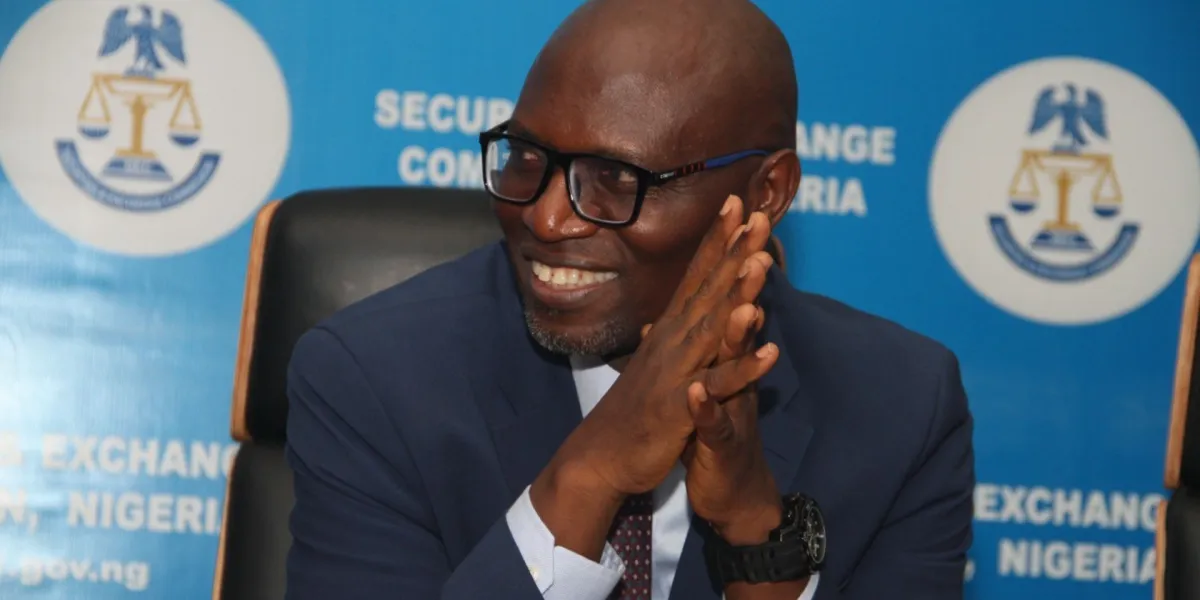Emomotimi Agama, the Director General of the Securities and Exchange Commission (SEC) in Nigeria, has underscored the transformative potential of crypto in bridging the financial inclusion gap for the country’s unbanked population. At the 2024 Annual Conference of the Association of Capital Market Academics of Nigeria, Agama emphasized that digital currencies like Bitcoin could lower remittance costs, making sending money home easier and cheaper for Nigerians abroad.
Agama projected that Nigeria’s crypto market would reach $52.5 million by 2028, a significant increase from its current valuation of over $400 million. This growth reflects Nigeria’s robust engagement with cryptocurrencies, where approximately 33.4% of the population owns or uses digital currencies. This substantial adoption presents a unique opportunity to extend financial services to almost 40 million unbanked Nigerians.
Agama says that “Some people don’t have bank accounts, but they have wallets.”
The director pointed out that Nigeria is, one of Africa’s largest recipients of remittances and benefits immensely from the reduced costs associated with Bitcoin transactions, making cross-border money transfers more efficient and affordable.
Nigeria’s regulatory challenges and crypto initiatives
Despite the promising outlook, Agama acknowledged the challenges associated with using cryptocurrencies. These include regulatory uncertainties, security concerns, and the need for greater financial literacy. He emphasized the necessity of a balanced regulatory approach to harness the benefits of crypto assets while mitigating associated risks.
Agama called for developing a clear regulatory framework, improved cybersecurity measures, and enhanced financial education to address these challenges. He noted that these steps are essential to protect investors and promote a healthy digital asset market.
Also Read: Tinubu’s ambiguous crypto policies leave Nigerians in limbo
Since his appointment in April, Agama has spearheaded several initiatives to regulate the burgeoning crypto market. The SEC introduced an amendment to the initial Rules on Digital Assets Issuance, Offering Platforms, Exchange, and Custody. This program is specifically designed for virtual asset service providers, offering them a path to align with new regulatory requirements.
Agama’s initiatives reflect his commitment to fostering a secure and innovative financial ecosystem. He emphasized the importance of collaborative efforts from regulators, industry stakeholders, and the public in developing effective regulations.
The impact on the economy
Nigeria remains a major player in global crypto adoption and transaction volume. Agama disclosed that from July 2022 to June 2023, Nigeria’s crypto transactions totaled $56.7 billion, a nine per cent increase year over year. This underscores the strength and promise of the nation’s economy.
Incorporating cryptocurrencies into Nigeria’s framework could significantly improve financial inclusivity. Cryptocurrencies offer a cost-effective alternative for remittances, which is crucial for a country’s inbound remittances. Traditional remittance charges are often excessive. However, Bitcoin transactions can slash these costs by half.
Trading plans for the near future
While cryptocurrencies offer many opportunities for Nigeria, Agama emphasized the importance of adopting a balanced regulatory strategy to leverage their advantages while managing risks effectively. He raised concerns about illicit activities, citing cases of crypto-related scams by the Nigerian Economic and Financial Crimes Commission (EFCC).
Also Read: Nigerian authorities claim Binance executive is enjoying quality medical care
The absence of rules and concerns about cybersecurity threats such as hacking and fraud brings risks. Additionally, a significant portion of the population lacks knowledge, leaving them susceptible to fraudulent schemes and speculative investments.
Chairman Mairiga Katuka of the SEC echoed Agamas’s views, highlighting that the emergence of cryptocurrencies offers an advantage for the markets. He called on stakeholders to work to promote the growth of a resilient capital market in alignment with President Bola Tinubus’s vision of positioning the nation as a top investment destination.
Cryptopolitan Reporting by Florence Muchai





